Events
| Name | organizer | Where |
|---|---|---|
| MBCC “Doing Business with Mongolia seminar and Christmas Receptiom” Dec 10. 2025 London UK | MBCCI | London UK Goodman LLC |
NEWS
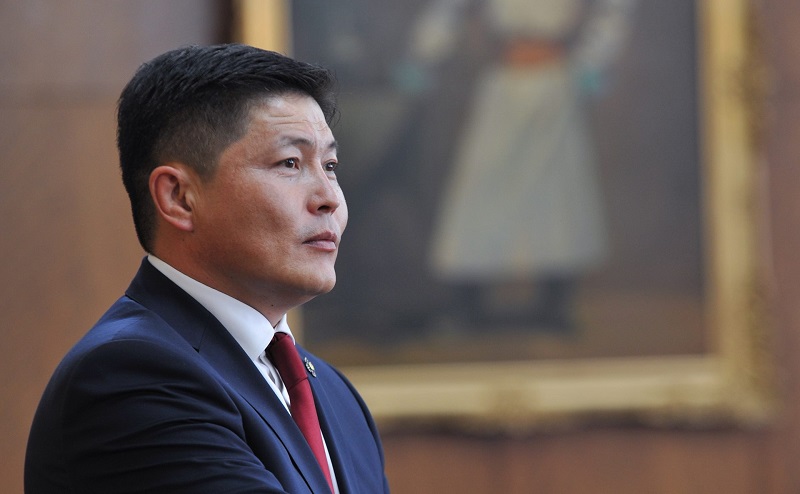
Mayor Nyambaatar: An International Open Tender for the Construction of a Metro Will Be Announced This Month www.montsame.mn
The capital has initiated the construction of a high-capacity metro in Ulaanbaatar. The Governor of the Capital City, and the Mayor of Ulaanbaatar, Nyambaatar Khishgee, presented this development to journalists yesterday.
The Mayor, in his address, highlighted that the metro construction project has commenced, following recent government discussions and resolution on financing. The capital city itself will bear 100 percent of the budget. Additionally, in the event of a need to guarantee construction performance, the government will issue a partial guarantee.
A meeting of the Governor's Council of the capital is scheduled to discuss the construction. In the upcoming weeks, the budget will be presented at the meeting of the Citizens Representative Khural of the Capital, with subsequent approval of the budget.
The city of Ulaanbaatar collects USD 100-200 million in tax revenue in the state budget. According to this government's resolution, it has been decided that the revenue collected by the capital city can be used to finance the metro project.
Based on a preliminary feasibility study, the metro project has an estimated budget of USD 1.3 billion. The capital city anticipates raising an average of USD 200 million annually through its budget revenues for project financing. The Mayor provided further clarification on the project.
- So, does it mean that the feasibility study for building the metro is ready? Is it a new one, or is it based on the feasibility study previously done by JICA?
- The idea of having the first metro in the capital was discussed in the mid-1980s, and the then urban development management and the scientists and experts of the former Soviet Union jointly drilled 5 large boreholes in the center of Ulaanbaatar and conducted the first analysis.
Since then, discussions have been ongoing since 2005, and the first basic research was carried out until 2013. In 2011, South Korea's "Soosung Engineering" company made the first preliminary feasibility study, and then, by combining the collected analysis and data, in 2013, Japan's international cooperation organization JICA made the preliminary feasibility study that we have now.
According to this feasibility study, the construction of a one-line metro in Ulaanbaatar, along with the depot, is planned to be approximately 18.3 km long horizontally from Tolgoit to Amgalan. Of this, a feasibility study is planned for 6.6 km in the central part of the capital to go underground, and the remaining parts will have a pillar-based bridge structure.
- What preparations have started now?
- Within this month, an international open tender will be announced for the selection of the consultant to manage the project and the contractor. Negotiations will commence with the selected companies and institutions. The finalization of how many years the project will take and at what cost, will be based on the outcomes of the open tenders.
Furthermore, the feasibility study mentions the pre-sale of some immovable assets of the capital during the project's implementation. This preliminary estimate is aimed at financing the metro project by utilizing our internal resources.
In the future, with funding from 2025-2028, the capital's treasury will conduct calculations and research on several scenarios to advance the metro project. Currently, over MNT 300 billion per year is allocated for public transport subsidies in the capital. There are plans to conduct calculations and studies on how to make efficient investments with the funds provided in this manner.

Mongolian police seize more than 72,000 doses of synthetic drugs in 2023 www.akipress.com
Mongolian police detained 298 suspects involved in drug trafficking and consumption and seized more than 72,000 doses of drugs in 2023, local media reported on Monday, citing data from the country's Main Police Department.
A total of 214 crimes related to the illegal trafficking and consumption of narcotic and psychotropic substances were registered in Mongolia, the official statement noted.
According to experts, there has been a sharp increase in the number of crimes on illicit trafficking and consumption of narcotic and psychotropic substances in Mongolia in recent years.
"The main reasons for the increase in drug crimes in Mongolia are the lack of knowledge about drugs, curiosity and the want to earn money," they added.

Foreign Trade Turnover Increases by 15 Percent www.montsame.mn
As of December 2023, Mongolia’s total foreign trade turnover increased by 15 percent (or USD 3194.0 million) compared to the previous year, reaching USD 24,437.0 million. The foreign trade balance was in surplus as exports exceeded imports by USD 5932.0 million. In 2023, trade through temporary ports amounted to USD 395.3 million, constituting 1.6 percent of the total trade turnover, 2 percent of exports, and 0.5 percent of imports.
A total of USD 15,184.5 million worth of goods and raw materials were exported, an increase of 21.1 percent compared to the same period last year. 98.8 percent of the export goods were traded with foreign currencies. Compared to 2022, it increased by USD 2533.1 million or 20.3 percent.

Mongolia reconnects with global payment system www.news.mn
The Trade Development Bank became the first bank to reconnect Mongolia to the global payment system in US dollars.
Mongolia improved its rating by fully complying with 40 FATF recommendations last July. International payments were restored as a result. Previously, a number of difficulties occurred in their implementation.
Mongolia has become the first country in Asia and the Pacific region and the fifth country in the world to fully implement the 40 FATF recommendations.
The Trade and Development Bank for the first time began cooperation with the Bank of New York Mellon, a leading commercial bank in the United States, by opening a nostro account.
A nostro account is a bank account held in another country by a domestic bank, denominated in the currency of the overseas country.
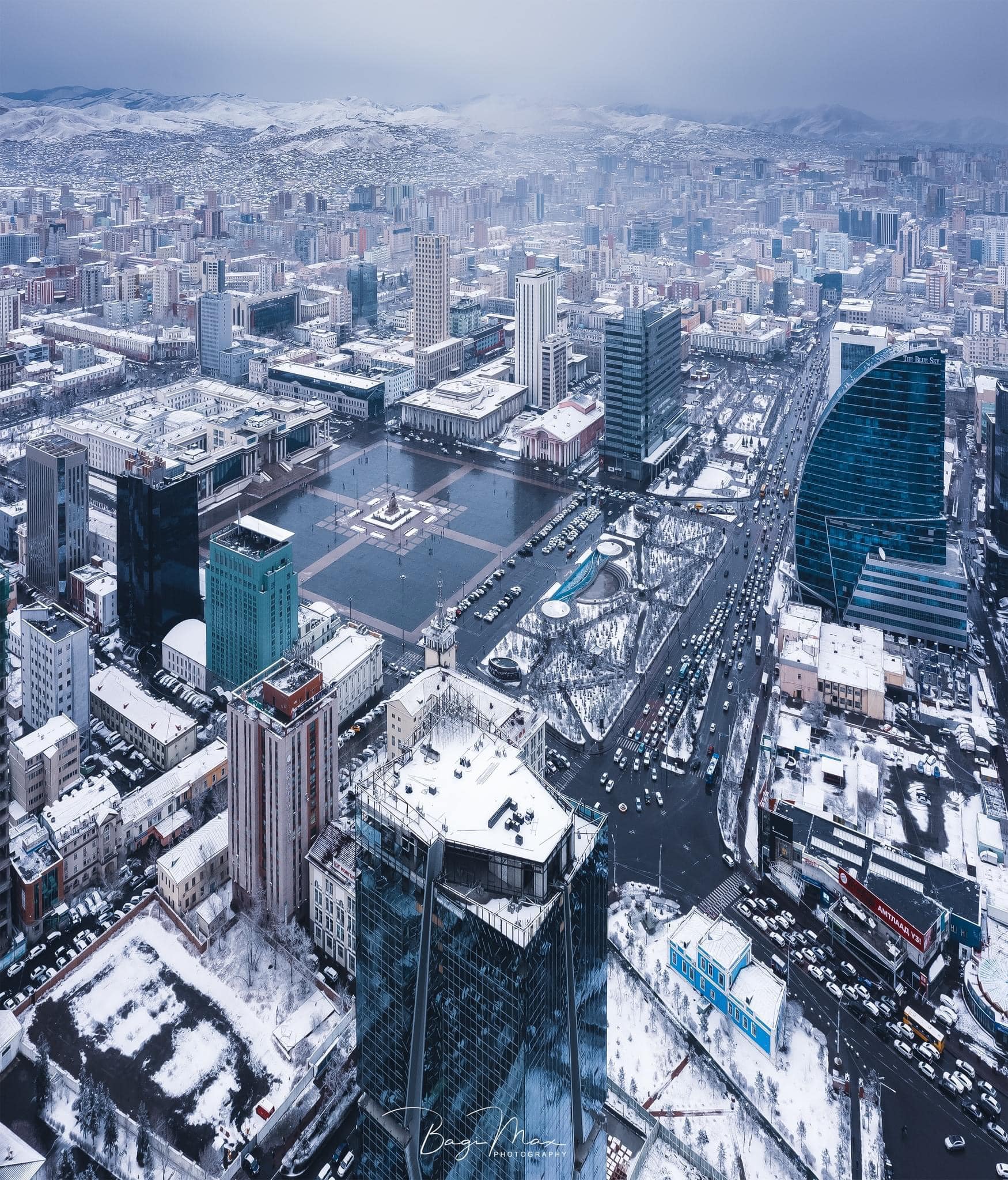
Mongolia allocates MNT 744.8 billion in science projects www.news.mn
The Ministry of Education and Science of Mongolia plans to finance 442 educational and science projects worth MNT 744.8 billion in 2024. The overall budget allocated to the education sector is MNT 4.2 trillion, 5 percent of the gross domestic product.
It is planned to build 142 schools, 149 kindergartens, and 40 dormitories in 2024 to expand education facilities. A total of MNT 330.5 billion will be allocated for 173 projects.
Some MNT 14.5 billion will be provided for teacher education scholarships, while MNT 6.9 billion will cover tuition fees for children of teachers and employees with at least 15 years of service, who will study in leading professions.
The Ministry will grant a six-month bonus to rural teachers for every five years of service (awarded every three years in the future), totaling MNT 105.3 billion.
And MNT 196.8 billion will be allocated to finance variable costs of vocational institutions. The “Lunch” program will be implemented for secondary school students with MNT 87.4 billion.

Mysterious medieval wall spanning 250 miles in Mongolia is studied for the first time www.news.yahoo.com
The Great Wall of China has long overshadowed the Mongolian Arc, a less imposing medieval wall system that snakes across 250 miles of Asiatic grassland.
But now, the arc is finally getting its day in the sun as the first-ever comprehensive study of its structure has been completed.
The study, published on Dec. 27 in the Journal of Field Archaeology, examines the formation and function of the “monumental” Mongolian wall.
Consisting of an earthen wall, dozens of structures and a trench, the arc stretches across a sparsely populated region in eastern Mongolia. It is believed to have been built between the 11th and 13th centuries.
After using remote sensing data and conducting archaeological field surveys, researchers determined the wall is significantly crumbled with gaps interrupting its path.
“We found that the walls are preserved to a maximum height of 1–1.5 (meters) but are usually much more eroded and are barely visible above the ground level,” researchers said. “It should be stressed that these walls are not as impressive as the popular imagery of the ‘Great Wall of China’ may have us assume.”
Twenty-one gaps were identified in the wall — from only a quarter-mile wide to over 10 miles wide — making up about 25% of its entire length.
“One possible explanation for the gaps, which were points of vulnerability in the system, is that the Mongolian Arc was hastily built during the final years of the Jin dynasty as a defense against the expected invading Mongol armies,” researchers said.
However, evidence gathered by researchers casts doubt on a purely military function of the wall.
Buildings found throughout the wall system provided limited visibility to each other, making visual communication impossible.
The wall, instead, may have been used to control the travel of people and herds across the steppe — perhaps allowing for taxes to be collected.
“Nonetheless, if the function was to defend against the Mongolian invasions (or even against smaller scale raids), perhaps the positioning of the wall and its structures was affected by consideration of convenience and cost,” researchers said.
The study did not unravel all of the wall’s mysteries, though it may spur future investigation, researchers said.
It also “prompts crucial questions about the motives, functionality, and broader implications of such colossal constructions,” according to a news release from the Hebrew University of Jerusalem, whose researchers were involved in the study.
‘Unusual’ 1,400-year-old gravesite — with remains of feast — found near castle in Wales
‘Mysterious’ inscription on ancient sphinx is deciphered, revealing ‘unusual’ message
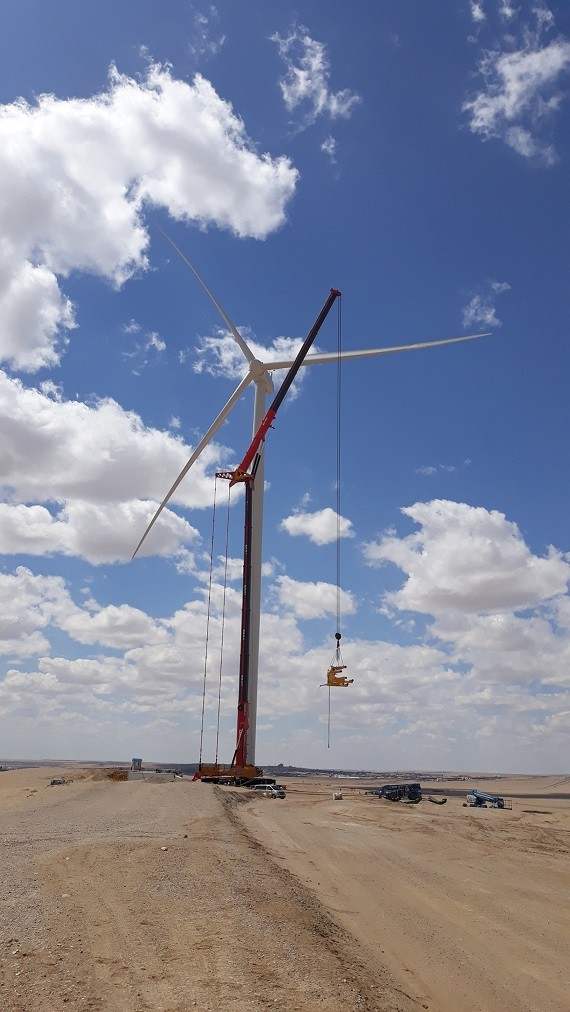
Innovative wind-solar hydrogen production project goes live in Inner Mongolia www.chinadaily.com.cn
A photovoltaic hydrogen demonstration project in Juungar Banner, Inner Mongolia autonomous region, was recently connected to the grid in a step to stabilize power generation.
It is the first hydrogen-producing integrated project for wind-solar hydrogen production in Inner Mongolia and the world's first 100,000-ton green hydrogen demonstration project.
It utilizes green electricity from solar power to electrolyze water into hydrogen and oxygen through water electrolysis devices. By exploring a new mode of pollution-free and zero-emission hydrogen production using renewable energy, the project aims to address power absorption for high-proportion grid integration of renewable energy sources.
"About 80 percent of the generated solar electricity is used for water electrolysis to produce hydrogen, while the remaining 20 percent is fed into the grid. The annual hydrogen production reaches 10,000 tons, with an additional byproduct of 85,000 tons of oxygen. The hydrogen production facility consists of 15 electrolyzers with a maximum load of 90,000 kilowatts, which satisfies 10,000 tons of annual hydrogen production target," said Ji Mengbo, the technical director of the Narisong photovoltaic hydrogen project.
Ji added that it achieves overall profitability through equal substitution and power settlement with the grid.
Photovoltaic power generation is stochastic, fluctuating and intermittent, while hydrogen production requires a stable power supply. To ensure the power demand of China's first 10,000-ton new energy hydrogen production, Xuejiawan power supply company of Inner Mongolia Electric Power CO Ltd has invested 233 million yuan ($32 million) into the construction of the Andinghao 220 kV substation project.
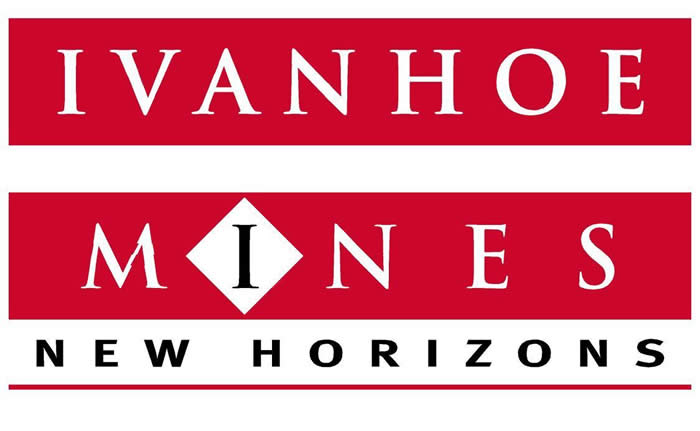
Ivanhoe eyes higher copper output at Kamoa-Kakula www.mining.com
Canada’s Ivanhoe Mines (TSX: IVN) produced 393,551 tonnes of copper last year at its flagship Kamoa-Kakula complex in the Democratic Republic of the Congo, up 18% from 2022 levels and it expects to churn out between 440,000 and 490,000 tonnes of the metal this year.
The targets for 2024 should be reached following the anticipated completion of the 5-million-tonne-per-annum Phase 3 concentrator during the third quarter of 2024, executive co-chair Robert Friedland and president Marna Cloete said in the statement.
SIGN UP FOR THE COPPER DIGEST
The news followed the announcement last week of first shipment of copper concentrate from the DRC complex arriving to the port of Lobito, in Angola.
The trial run showed that Ivanhoe could shorten its export route from Kamoa-Kakula by two thirds, simplifying logistics and cutting costs.
The company also noted that a daily milling record was achieved on Jan. 1, 2024, as 31,084 tonnes of ore were processed by the Phase 1 and 2 concentrators over 24 hours. This is equivalent to an annual milling rate of 10.4 million tonnes, Ivanhoe said.
Kamoa Copper has been working with DRC’s state-owned power company, La Société Nationale d’Electricité (SNEL), to identify the causes of the instability across the southern DRC’s grid infrastructure and to identify long-lasting solutions.
SNEL and Ivanhoe Mines Energy DRC, a subsidiary of Kamoa Holding Limited, signed in December an amendment to the existing financing agreement to cover identified infrastructure upgrades. The original financing agreement consisted of a loan of up to $250 million for the refurbishment of 78 megawatts (MW) of generation capacity at the Mwadingusha dam and 178 MW of generation capacity from Turbine #5 at the Inga II dam.
The refurbishment of the Mwadingusha facility was completed in September 2021, and the refurbishment of Turbine #5 at Inga II is on schedule to be completed in the fourth quarter of 2024, the company said.
Changes to the financing agreement expand the loan up to a total of $450 million, which will be assigned specifically to grid infrastructure upgrades.
The Vancouver-based miner said it would issue 2023 financial results and host a conference call for investors on February 26.
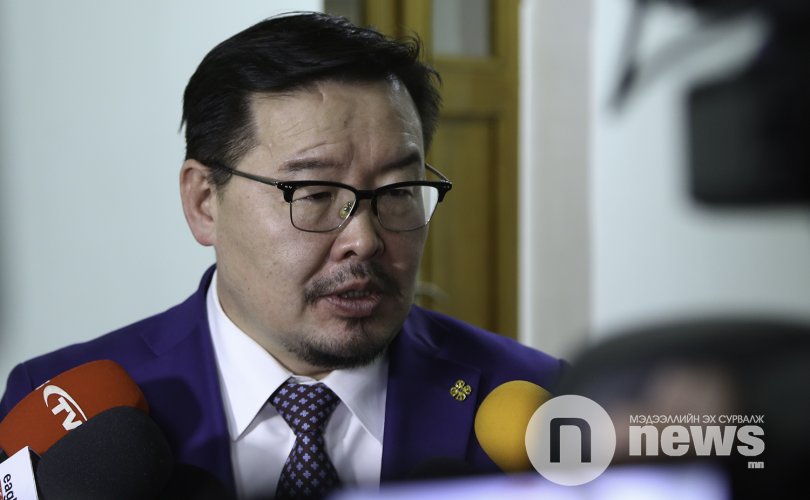
Speaker of the State Great Khural Concerns on Improper Effects of Social Media on Elections www.montsame.mn
At the plenary session of the State Great Khural on January 04, 2023, Chairman of the State Great Khural Zandanshatar Gombojav concerning incidents in other countries stated how AI-generated deepfake videos might influence voters. The Speaker instructed relevant organizations to take necessary measures to prevent the risk of fake content during the forthcoming parliamentary elections process.
Also, the MPs asked the officials about possible solutions and plans to prevent the negative effects of social media on the electoral process. Chairman of the National Police Agency of Mongolia (NPA) T. Sukhbold stated that Mongolia's social media usage is the highest among Asian countries.
"The police regularly track fake addresses in the social media. The number of personnel of the Cyber Crime Division of NPA Mongolia has been increased from 40 to 80 employees and much has been done to improve their knowledge and skills and update equipment. However, as new technology is emerging every day, the equipment needs to be updated constantly to keep up with technological advancement. Detection of cybercrimes such as causing others financial harm under fake addresses, and spreading false information increased by 50.3 percent last year," stated T. Sukhbold.
T. Sukhbold highlighted the possibility of monitoring and preventive measures in digital space within the framework of laws and noted that special devices legally recognizable internationally and in Mongolia can be installed in the Internet network.
He noted that though the police identify fake addresses, under current legislation it is impossible to directly block or limit their activities. Therefore, the list of detected fake addresses is submitted to the Communications Regulatory Commission of Mongolia (CRCM) and a response to a request, sent to the parent organization of the network from the CRCM, can be received within 2-3 days, or in some cases there is no response in 3 months. However, appropriate solutions will make it possible to block or restrict a fake address within 1-3 hours. T. Sukhbold emphasized the importance of creating a legal framework for an effective solution to the problem domestically.
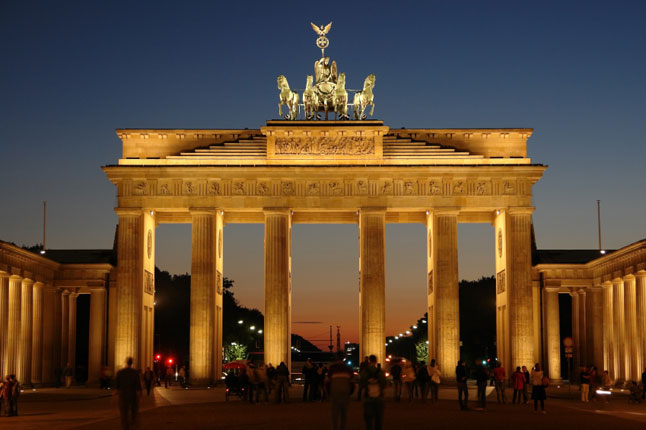
Emissions reach lowest level in 70 years due to sharp decline in coal use in Germany www.mining.com
An unexpectedly sharp decline in coal use led to a reduction in Germany’s CO₂ emissions in 2023, reaching their lowest level in 70 years, according to a recent report by Agora Energiewende.
In detail, Germany’s greenhouse gas emissions fell to 673 million tonnes of CO₂-equivalent, which refers to all greenhouse gas emissions, including substances such as methane and nitrous oxide, that are converted into their CO2 equivalent and added to the emissions balance.
Emissions, thus, fell by 46% compared to the reference year 1990 – their lowest level since the 1950s. At the same time, CO₂ emissions were about 49 million tonnes of CO₂ below the annual target of 722 million tonnes of CO₂ derived from the Climate Protection Act.
Agora Energiewende’s analysis shows that two main developments were responsible for the decrease of 73 million tonnes of CO₂ compared to 2022.
First, coal-fired power generation fell to its lowest level since the 1960s, saving 44 million tonnes of CO₂ alone. The reasons for this were a significant drop in electricity demand, increased electricity imports from neighbouring countries – around half of which came from renewable sources of energy – as well as a commensurate decrease in electricity exports and a slight increase in domestic green electricity generation.
Second, emissions from industry fell significantly. This was largely due to the decline in production by energy-intensive companies as a result of the economic situation and international crises.
“While overall economic output shrank by 0.3% according to preliminary figures, energy-intensive production fell by 11% in 2023,” the paper reads.
Coal-fired power plant in Lünen, Germany
Conventional electricity generation fell by 24% in 2023 in Germany compared to the previous year. Kernkraft is nuclear power; braunkohle is brown coal; steinkohle is hard coal; erdgas is natural gas; mineralöl is mineral oil; sonstige is other.
The think tank’s calculations, however, show that only about 15% of the CO₂ saved constitutes permanent emissions reductions resulting from additional renewable energy capacity, efficiency gains and the switch to fuels that produce less CO₂ or other climate-friendly alternatives.
About half of the emissions cuts are due to short-term effects, such as lower electricity prices. Therefore, Agora notes that most of the emissions cuts in 2023 are not sustainable from an industrial or climate policy perspective as emissions may rise again as the economy picks up or if a share of Germany’s industrial production is permanently moved abroad.
The study found that CO₂ emissions from buildings and transportation remained almost unchanged in 2023, resulting in these sectors missing their climate goals for the fourth and third successive time, respectively.
“2023 was a two-speed year as far as climate protection in Germany is concerned: the energy sector notched up a climate policy success with its record level of new renewable power, taking us closer to the 2030 target,” Simon Müller, director of Agora Energiewende Germany, writes in the report. “However, we don’t consider the emissions reductions seen in the industrial sector to be sustainable. The drop in production due to the energy crisis weakens Germany’s industrial base. If emissions are simply shifted abroad as a result, this won’t benefit the climate. The buildings and transport sectors are also lagging as far as structural climate protection measures are concerned.”
In Müller’s view, to permanently replace CO₂-intensive forms of electricity production in the electricity mix, the deployment of renewables needs to grow in the coming year.
“Industry needs adequate conditions to be able to invest in Germany – such as in the production of climate-neutral steel and the transition from gas to electricity for process heat,” the document points out. “In the building sector, the measures agreed need to be resolutely implemented in 2024. And transportation requires a fundamental political course correction to achieve a breakthrough for climate-friendly mobility.”
Coal’s performance
Looking specifically at coal, the report shows that emissions from electricity generation fell by 46 million tonnes of CO₂ to 177 million tonnes of CO₂ – less than half the level recorded in 1990. The 21% drop in emissions compared to 2022 is mainly due to the sharp decline in coal-fired power generation: lower electricity production from lignite saved 29 million tonnes of CO₂, while hard coal-fired power generation saved 15 million tonnes of CO₂.
The main reasons behind the decline were, first, a 3.9% drop in electricity consumption compared to 2022 as a result of the fossil fuel crisis.
Second, the strong renewable electricity generation across Europe meant that Germany imported more electricity instead of producing it in domestic coal-fired power plants. Over the year, Germany sold around 58 terawatt hours of domestically generated electricity abroad and imported 69 terawatt hours. About 49% of electricity imports came from renewable sources – primarily hydro and wind power – and 24% from nuclear power.
Third, renewable energy production increased by 5%. Total emissions from the energy industry, including refineries and district heating in addition to the electricity sector, amounted to 210 million tonnes of CO2 and were therefore 46 million tonnes of CO₂, or 18%, below the previous year’s levels.
The report notes that, overall, the supply situation in the energy market eased in 2023, and both electricity and natural gas prices fell compared to the previous year.
“The price of electricity is more strongly affected by levies and surcharges than the prices of fossil fuels such as oil and gas. This is slowing the switch by households to climate-friendly technologies such as electric cars or heat pumps,” Müller said. “A reform of the levy and surcharge system is necessary to correct the imbalance. The changes should make it possible for low electricity prices to reach consumers in times of high wind and solar power generation.”
Renewables’ performance
The executive also emphasized that record levels of newly installed solar capacity contributed to the drop in electricity prices: Germany added 14.4 gigawatts of photovoltaic capacity last year, an increase of 6.2 gigawatts compared to the previous record in 2012. Although there were fewer hours of sun in 2023, solar power facilities produced 61 terawatt hours of electricity – one terawatt hour more than the previous year. Photovoltaic expansion was therefore well above the target pathway for 2030. Wind energy generation had a record year. This was due to favourable weather conditions and a slight increase in the number of wind turbines.
“At 138 terawatt hours, wind remained the largest source of electricity, producing more than all of Germany’s coal-fired power plants (132 terawatt hours),” the dossier points out. “However, the expansion of onshore wind power was much too low at 2.9 gigawatts. To achieve the country’s binding expansion targets for 2030, annual average wind capacity additions need to rise to 7.7 gigawatts from 2024. Permits, meanwhile, increased: at 7.7 gigawatts, the output of approved wind projects rose 74% compared with 2022.”
Overall, renewable energy managed to supply more than 50% of the total gross electricity demand in Germany for the first time in 2023.
- «
- 1
- 2
- 3
- 4
- 5
- 6
- 7
- 8
- 9
- 10
- 11
- 12
- 13
- 14
- 15
- 16
- 17
- 18
- 19
- 20
- 21
- 22
- 23
- 24
- 25
- 26
- 27
- 28
- 29
- 30
- 31
- 32
- 33
- 34
- 35
- 36
- 37
- 38
- 39
- 40
- 41
- 42
- 43
- 44
- 45
- 46
- 47
- 48
- 49
- 50
- 51
- 52
- 53
- 54
- 55
- 56
- 57
- 58
- 59
- 60
- 61
- 62
- 63
- 64
- 65
- 66
- 67
- 68
- 69
- 70
- 71
- 72
- 73
- 74
- 75
- 76
- 77
- 78
- 79
- 80
- 81
- 82
- 83
- 84
- 85
- 86
- 87
- 88
- 89
- 90
- 91
- 92
- 93
- 94
- 95
- 96
- 97
- 98
- 99
- 100
- 101
- 102
- 103
- 104
- 105
- 106
- 107
- 108
- 109
- 110
- 111
- 112
- 113
- 114
- 115
- 116
- 117
- 118
- 119
- 120
- 121
- 122
- 123
- 124
- 125
- 126
- 127
- 128
- 129
- 130
- 131
- 132
- 133
- 134
- 135
- 136
- 137
- 138
- 139
- 140
- 141
- 142
- 143
- 144
- 145
- 146
- 147
- 148
- 149
- 150
- 151
- 152
- 153
- 154
- 155
- 156
- 157
- 158
- 159
- 160
- 161
- 162
- 163
- 164
- 165
- 166
- 167
- 168
- 169
- 170
- 171
- 172
- 173
- 174
- 175
- 176
- 177
- 178
- 179
- 180
- 181
- 182
- 183
- 184
- 185
- 186
- 187
- 188
- 189
- 190
- 191
- 192
- 193
- 194
- 195
- 196
- 197
- 198
- 199
- 200
- 201
- 202
- 203
- 204
- 205
- 206
- 207
- 208
- 209
- 210
- 211
- 212
- 213
- 214
- 215
- 216
- 217
- 218
- 219
- 220
- 221
- 222
- 223
- 224
- 225
- 226
- 227
- 228
- 229
- 230
- 231
- 232
- 233
- 234
- 235
- 236
- 237
- 238
- 239
- 240
- 241
- 242
- 243
- 244
- 245
- 246
- 247
- 248
- 249
- 250
- 251
- 252
- 253
- 254
- 255
- 256
- 257
- 258
- 259
- 260
- 261
- 262
- 263
- 264
- 265
- 266
- 267
- 268
- 269
- 270
- 271
- 272
- 273
- 274
- 275
- 276
- 277
- 278
- 279
- 280
- 281
- 282
- 283
- 284
- 285
- 286
- 287
- 288
- 289
- 290
- 291
- 292
- 293
- 294
- 295
- 296
- 297
- 298
- 299
- 300
- 301
- 302
- 303
- 304
- 305
- 306
- 307
- 308
- 309
- 310
- 311
- 312
- 313
- 314
- 315
- 316
- 317
- 318
- 319
- 320
- 321
- 322
- 323
- 324
- 325
- 326
- 327
- 328
- 329
- 330
- 331
- 332
- 333
- 334
- 335
- 336
- 337
- 338
- 339
- 340
- 341
- 342
- 343
- 344
- 345
- 346
- 347
- 348
- 349
- 350
- 351
- 352
- 353
- 354
- 355
- 356
- 357
- 358
- 359
- 360
- 361
- 362
- 363
- 364
- 365
- 366
- 367
- 368
- 369
- 370
- 371
- 372
- 373
- 374
- 375
- 376
- 377
- 378
- 379
- 380
- 381
- 382
- 383
- 384
- 385
- 386
- 387
- 388
- 389
- 390
- 391
- 392
- 393
- 394
- 395
- 396
- 397
- 398
- 399
- 400
- 401
- 402
- 403
- 404
- 405
- 406
- 407
- 408
- 409
- 410
- 411
- 412
- 413
- 414
- 415
- 416
- 417
- 418
- 419
- 420
- 421
- 422
- 423
- 424
- 425
- 426
- 427
- 428
- 429
- 430
- 431
- 432
- 433
- 434
- 435
- 436
- 437
- 438
- 439
- 440
- 441
- 442
- 443
- 444
- 445
- 446
- 447
- 448
- 449
- 450
- 451
- 452
- 453
- 454
- 455
- 456
- 457
- 458
- 459
- 460
- 461
- 462
- 463
- 464
- 465
- 466
- 467
- 468
- 469
- 470
- 471
- 472
- 473
- 474
- 475
- 476
- 477
- 478
- 479
- 480
- 481
- 482
- 483
- 484
- 485
- 486
- 487
- 488
- 489
- 490
- 491
- 492
- 493
- 494
- 495
- 496
- 497
- 498
- 499
- 500
- 501
- 502
- 503
- 504
- 505
- 506
- 507
- 508
- 509
- 510
- 511
- 512
- 513
- 514
- 515
- 516
- 517
- 518
- 519
- 520
- 521
- 522
- 523
- 524
- 525
- 526
- 527
- 528
- 529
- 530
- 531
- 532
- 533
- 534
- 535
- 536
- 537
- 538
- 539
- 540
- 541
- 542
- 543
- 544
- 545
- 546
- 547
- 548
- 549
- 550
- 551
- 552
- 553
- 554
- 555
- 556
- 557
- 558
- 559
- 560
- 561
- 562
- 563
- 564
- 565
- 566
- 567
- 568
- 569
- 570
- 571
- 572
- 573
- 574
- 575
- 576
- 577
- 578
- 579
- 580
- 581
- 582
- 583
- 584
- 585
- 586
- 587
- 588
- 589
- 590
- 591
- 592
- 593
- 594
- 595
- 596
- 597
- 598
- 599
- 600
- 601
- 602
- 603
- 604
- 605
- 606
- 607
- 608
- 609
- 610
- 611
- 612
- 613
- 614
- 615
- 616
- 617
- 618
- 619
- 620
- 621
- 622
- 623
- 624
- 625
- 626
- 627
- 628
- 629
- 630
- 631
- 632
- 633
- 634
- 635
- 636
- 637
- 638
- 639
- 640
- 641
- 642
- 643
- 644
- 645
- 646
- 647
- 648
- 649
- 650
- 651
- 652
- 653
- 654
- 655
- 656
- 657
- 658
- 659
- 660
- 661
- 662
- 663
- 664
- 665
- 666
- 667
- 668
- 669
- 670
- 671
- 672
- 673
- 674
- 675
- 676
- 677
- 678
- 679
- 680
- 681
- 682
- 683
- 684
- 685
- 686
- 687
- 688
- 689
- 690
- 691
- 692
- 693
- 694
- 695
- 696
- 697
- 698
- 699
- 700
- 701
- 702
- 703
- 704
- 705
- 706
- 707
- 708
- 709
- 710
- 711
- 712
- 713
- 714
- 715
- 716
- 717
- 718
- 719
- 720
- 721
- 722
- 723
- 724
- 725
- 726
- 727
- 728
- 729
- 730
- 731
- 732
- 733
- 734
- 735
- 736
- 737
- 738
- 739
- 740
- 741
- 742
- 743
- 744
- 745
- 746
- 747
- 748
- 749
- 750
- 751
- 752
- 753
- 754
- 755
- 756
- 757
- 758
- 759
- 760
- 761
- 762
- 763
- 764
- 765
- 766
- 767
- 768
- 769
- 770
- 771
- 772
- 773
- 774
- 775
- 776
- 777
- 778
- 779
- 780
- 781
- 782
- 783
- 784
- 785
- 786
- 787
- 788
- 789
- 790
- 791
- 792
- 793
- 794
- 795
- 796
- 797
- 798
- 799
- 800
- 801
- 802
- 803
- 804
- 805
- 806
- 807
- 808
- 809
- 810
- 811
- 812
- 813
- 814
- 815
- 816
- 817
- 818
- 819
- 820
- 821
- 822
- 823
- 824
- 825
- 826
- 827
- 828
- 829
- 830
- 831
- 832
- 833
- 834
- 835
- 836
- 837
- 838
- 839
- 840
- 841
- 842
- 843
- 844
- 845
- 846
- 847
- 848
- 849
- 850
- 851
- 852
- 853
- 854
- 855
- 856
- 857
- 858
- 859
- 860
- 861
- 862
- 863
- 864
- 865
- 866
- 867
- 868
- 869
- 870
- 871
- 872
- 873
- 874
- 875
- 876
- 877
- 878
- 879
- 880
- 881
- 882
- 883
- 884
- 885
- 886
- 887
- 888
- 889
- 890
- 891
- 892
- 893
- 894
- 895
- 896
- 897
- 898
- 899
- 900
- 901
- 902
- 903
- 904
- 905
- 906
- 907
- 908
- 909
- 910
- 911
- 912
- 913
- 914
- 915
- 916
- 917
- 918
- 919
- 920
- 921
- 922
- 923
- 924
- 925
- 926
- 927
- 928
- 929
- 930
- 931
- 932
- 933
- 934
- 935
- 936
- 937
- 938
- 939
- 940
- 941
- 942
- 943
- 944
- 945
- 946
- 947
- 948
- 949
- 950
- 951
- 952
- 953
- 954
- 955
- 956
- 957
- 958
- 959
- 960
- 961
- 962
- 963
- 964
- 965
- 966
- 967
- 968
- 969
- 970
- 971
- 972
- 973
- 974
- 975
- 976
- 977
- 978
- 979
- 980
- 981
- 982
- 983
- 984
- 985
- 986
- 987
- 988
- 989
- 990
- 991
- 992
- 993
- 994
- 995
- 996
- 997
- 998
- 999
- 1000
- 1001
- 1002
- 1003
- 1004
- 1005
- 1006
- 1007
- 1008
- 1009
- 1010
- 1011
- 1012
- 1013
- 1014
- 1015
- 1016
- 1017
- 1018
- 1019
- 1020
- 1021
- 1022
- 1023
- 1024
- 1025
- 1026
- 1027
- 1028
- 1029
- 1030
- 1031
- 1032
- 1033
- 1034
- 1035
- 1036
- 1037
- 1038
- 1039
- 1040
- 1041
- 1042
- 1043
- 1044
- 1045
- 1046
- 1047
- 1048
- 1049
- 1050
- 1051
- 1052
- 1053
- 1054
- 1055
- 1056
- 1057
- 1058
- 1059
- 1060
- 1061
- 1062
- 1063
- 1064
- 1065
- 1066
- 1067
- 1068
- 1069
- 1070
- 1071
- 1072
- 1073
- 1074
- 1075
- 1076
- 1077
- 1078
- 1079
- 1080
- 1081
- 1082
- 1083
- 1084
- 1085
- 1086
- 1087
- 1088
- 1089
- 1090
- 1091
- 1092
- 1093
- 1094
- 1095
- 1096
- 1097
- 1098
- 1099
- 1100
- 1101
- 1102
- 1103
- 1104
- 1105
- 1106
- 1107
- 1108
- 1109
- 1110
- 1111
- 1112
- 1113
- 1114
- 1115
- 1116
- 1117
- 1118
- 1119
- 1120
- 1121
- 1122
- 1123
- 1124
- 1125
- 1126
- 1127
- 1128
- 1129
- 1130
- 1131
- 1132
- 1133
- 1134
- 1135
- 1136
- 1137
- 1138
- 1139
- 1140
- 1141
- 1142
- 1143
- 1144
- 1145
- 1146
- 1147
- 1148
- 1149
- 1150
- 1151
- 1152
- 1153
- 1154
- 1155
- 1156
- 1157
- 1158
- 1159
- 1160
- 1161
- 1162
- 1163
- 1164
- 1165
- 1166
- 1167
- 1168
- 1169
- 1170
- 1171
- 1172
- 1173
- 1174
- 1175
- 1176
- 1177
- 1178
- 1179
- 1180
- 1181
- 1182
- 1183
- 1184
- 1185
- 1186
- 1187
- 1188
- 1189
- 1190
- 1191
- 1192
- 1193
- 1194
- 1195
- 1196
- 1197
- 1198
- 1199
- 1200
- 1201
- 1202
- 1203
- 1204
- 1205
- 1206
- 1207
- 1208
- 1209
- 1210
- 1211
- 1212
- 1213
- 1214
- 1215
- 1216
- 1217
- 1218
- 1219
- 1220
- 1221
- 1222
- 1223
- 1224
- 1225
- 1226
- 1227
- 1228
- 1229
- 1230
- 1231
- 1232
- 1233
- 1234
- 1235
- 1236
- 1237
- 1238
- 1239
- 1240
- 1241
- 1242
- 1243
- 1244
- 1245
- 1246
- 1247
- 1248
- 1249
- 1250
- 1251
- 1252
- 1253
- 1254
- 1255
- 1256
- 1257
- 1258
- 1259
- 1260
- 1261
- 1262
- 1263
- 1264
- 1265
- 1266
- 1267
- 1268
- 1269
- 1270
- 1271
- 1272
- 1273
- 1274
- 1275
- 1276
- 1277
- 1278
- 1279
- 1280
- 1281
- 1282
- 1283
- 1284
- 1285
- 1286
- 1287
- 1288
- 1289
- 1290
- 1291
- 1292
- 1293
- 1294
- 1295
- 1296
- 1297
- 1298
- 1299
- 1300
- 1301
- 1302
- 1303
- 1304
- 1305
- 1306
- 1307
- 1308
- 1309
- 1310
- 1311
- 1312
- 1313
- 1314
- 1315
- 1316
- 1317
- 1318
- 1319
- 1320
- 1321
- 1322
- 1323
- 1324
- 1325
- 1326
- 1327
- 1328
- 1329
- 1330
- 1331
- 1332
- 1333
- 1334
- 1335
- 1336
- 1337
- 1338
- 1339
- 1340
- 1341
- 1342
- 1343
- 1344
- 1345
- 1346
- 1347
- 1348
- 1349
- 1350
- 1351
- 1352
- 1353
- 1354
- 1355
- 1356
- 1357
- 1358
- 1359
- 1360
- 1361
- 1362
- 1363
- 1364
- 1365
- 1366
- 1367
- 1368
- 1369
- 1370
- 1371
- 1372
- 1373
- 1374
- 1375
- 1376
- 1377
- 1378
- 1379
- 1380
- 1381
- 1382
- 1383
- 1384
- 1385
- 1386
- 1387
- 1388
- 1389
- 1390
- 1391
- 1392
- 1393
- 1394
- 1395
- 1396
- 1397
- 1398
- 1399
- 1400
- 1401
- 1402
- 1403
- 1404
- 1405
- 1406
- 1407
- 1408
- 1409
- 1410
- 1411
- 1412
- 1413
- 1414
- 1415
- 1416
- 1417
- 1418
- 1419
- 1420
- 1421
- 1422
- 1423
- 1424
- 1425
- 1426
- 1427
- 1428
- 1429
- 1430
- 1431
- 1432
- 1433
- 1434
- 1435
- 1436
- 1437
- 1438
- 1439
- 1440
- 1441
- 1442
- 1443
- 1444
- 1445
- 1446
- 1447
- 1448
- 1449
- 1450
- 1451
- 1452
- 1453
- 1454
- 1455
- 1456
- 1457
- 1458
- 1459
- 1460
- 1461
- 1462
- 1463
- 1464
- 1465
- 1466
- 1467
- 1468
- 1469
- 1470
- 1471
- 1472
- 1473
- 1474
- 1475
- 1476
- 1477
- 1478
- 1479
- 1480
- 1481
- 1482
- 1483
- 1484
- 1485
- 1486
- 1487
- 1488
- 1489
- 1490
- 1491
- 1492
- 1493
- 1494
- 1495
- 1496
- 1497
- 1498
- 1499
- 1500
- 1501
- 1502
- 1503
- 1504
- 1505
- 1506
- 1507
- 1508
- 1509
- 1510
- 1511
- 1512
- 1513
- 1514
- 1515
- 1516
- 1517
- 1518
- 1519
- 1520
- 1521
- 1522
- 1523
- 1524
- 1525
- 1526
- 1527
- 1528
- 1529
- 1530
- 1531
- 1532
- 1533
- 1534
- 1535
- 1536
- 1537
- 1538
- 1539
- 1540
- 1541
- 1542
- 1543
- 1544
- 1545
- 1546
- 1547
- 1548
- 1549
- 1550
- 1551
- 1552
- 1553
- 1554
- 1555
- 1556
- 1557
- 1558
- 1559
- 1560
- 1561
- 1562
- 1563
- 1564
- 1565
- 1566
- 1567
- 1568
- 1569
- 1570
- 1571
- 1572
- 1573
- 1574
- 1575
- 1576
- 1577
- 1578
- 1579
- 1580
- 1581
- 1582
- 1583
- 1584
- 1585
- 1586
- 1587
- 1588
- 1589
- 1590
- 1591
- 1592
- 1593
- 1594
- 1595
- 1596
- 1597
- 1598
- 1599
- 1600
- 1601
- 1602
- 1603
- 1604
- 1605
- 1606
- 1607
- 1608
- 1609
- 1610
- 1611
- 1612
- 1613
- 1614
- 1615
- 1616
- 1617
- 1618
- 1619
- 1620
- 1621
- 1622
- 1623
- 1624
- 1625
- 1626
- 1627
- 1628
- 1629
- 1630
- 1631
- 1632
- 1633
- 1634
- 1635
- 1636
- 1637
- 1638
- 1639
- 1640
- 1641
- 1642
- 1643
- 1644
- 1645
- 1646
- 1647
- 1648
- 1649
- 1650
- 1651
- 1652
- 1653
- 1654
- 1655
- 1656
- 1657
- 1658
- 1659
- 1660
- 1661
- 1662
- 1663
- 1664
- 1665
- 1666
- 1667
- 1668
- 1669
- 1670
- 1671
- 1672
- 1673
- 1674
- 1675
- 1676
- 1677
- 1678
- 1679
- 1680
- 1681
- 1682
- 1683
- 1684
- 1685
- 1686
- 1687
- 1688
- 1689
- 1690
- 1691
- 1692
- 1693
- 1694
- 1695
- 1696
- 1697
- 1698
- 1699
- 1700
- 1701
- 1702
- 1703
- 1704
- 1705
- 1706
- 1707
- 1708
- 1709
- 1710
- 1711
- 1712
- 1713
- 1714
- »






